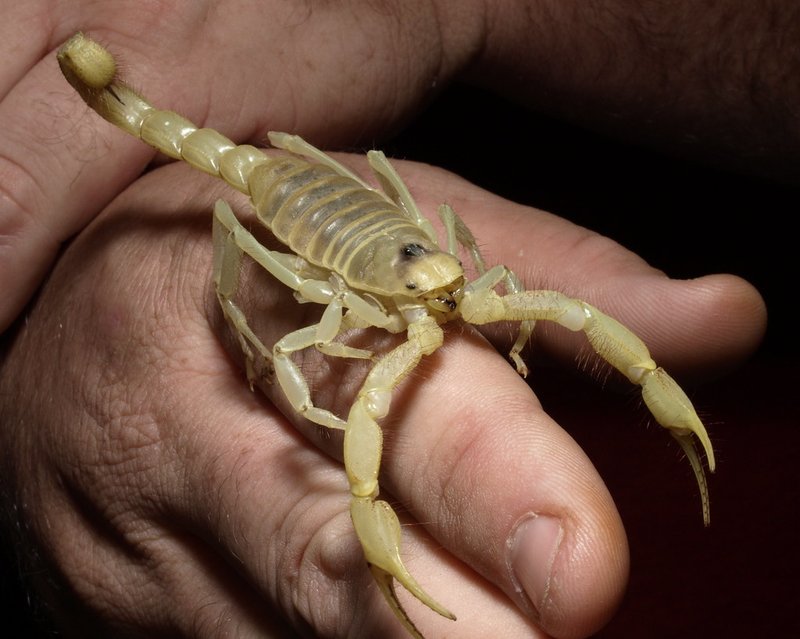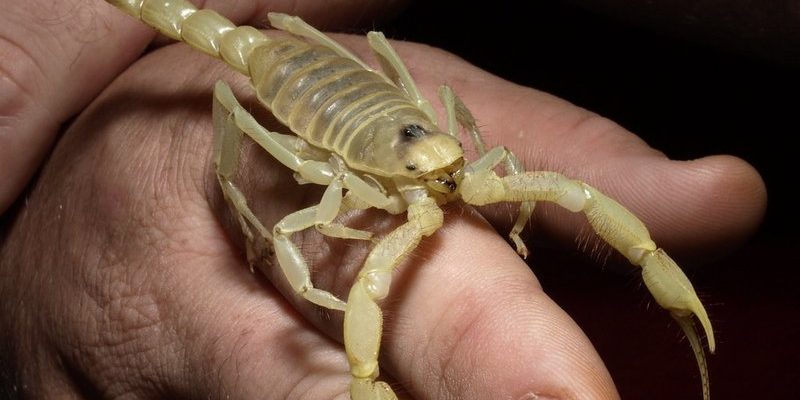
Let’s dive into this topic like we’re sitting at a café, chatting about the wild wonders of the animal kingdom. The Giant Hairy Scorpion, or *Hadrurus arizonensis*, is a fascinating specimen found mostly in desert regions, particularly in the southwestern United States. It can grow to be about 8 inches long, and yes, it looks intimidating! But let’s separate fact from fiction and explore just how dangerous this scorpion really is.
Understanding the Giant Hairy Scorpion
The Giant Hairy Scorpion is not just a big scorpion; it’s one of the largest scorpions in North America. With a body length of up to 8 inches and covered in long, hair-like setae, it earns its name. These little hairs are more than just decoration; they help the scorpion sense vibrations in its environment, allowing it to detect predators and prey.
You might picture them as aggressive killers, but in reality, these scorpions are not actively looking for a fight. They prefer to stay hidden, often under rocks or in burrows. This species is mostly nocturnal, meaning they come out at night to hunt insects and other small creatures. Think of them as the introverted giants of the desert, only coming out when the sun sets.
The Venom of the Giant Hairy Scorpion
Here’s the thing: all scorpions have venom, and the Giant Hairy Scorpion is no exception. Its venom is used primarily for hunting prey. When it stings, the venom immobilizes small insects, making it easier for the scorpion to eat. You might be wondering, “What about humans?”
While its venom is potent for insects, it’s not particularly deadly to us. For most people, a sting from a Giant Hairy Scorpion feels like a painful bee sting. It can cause swelling, redness, and discomfort, but serious reactions are rare. However, some individuals, especially those allergic to insect venom, may experience severe reactions.
Can a Giant Hairy Scorpion Kill a Human?
Now, let’s address the elephant—or should I say, scorpion—in the room: can the Giant Hairy Scorpion kill a human? The short answer is *no*. Its venom is not lethal to humans, and there are no recorded fatalities directly caused by this species.
That said, it’s important to recognize that any animal, when threatened, can act defensively. If a person were to provoke a Giant Hairy Scorpion, it could certainly sting. While the pain might be intense, the chances of it resulting in death are extremely slim. It’s like getting a sharp jab from a thorn; it hurts but won’t end your day.
Myths and Misconceptions About Scorpions
It’s easy to fall into the trap of *myths* about scorpions, especially ones that make them seem more dangerous than they are. Many horror stories circulate about these creatures being killers. However, most myths stem from fear of the unknown.
For instance, some people believe that scorpions can jump or that they seek out humans to attack. In reality, they prefer to live and let live. Their primary focus is on survival and finding food. The more we learn about these fascinating creatures, the more we can debunk these myths.
What to Do If Stung by a Giant Hairy Scorpion
If you happen to get stung by a Giant Hairy Scorpion, here’s what you should do:
- Stay calm: Panicking can make symptoms feel worse.
- Clean the area: Use soap and water to clean the sting site.
- Ice it: Apply ice to reduce swelling and pain.
- Monitor symptoms: Keep an eye on any signs of an allergic reaction.
- Seek medical help: If symptoms worsen or you experience severe reactions, consult a doctor.
Most stings are manageable at home, but it’s always wise to be cautious.
How to Stay Safe in Scorpion Territory
If you’re venturing into areas where Giant Hairy Scorpions live, keeping safe is essential. Here are some tips to minimize your chances of an encounter:
- Wear protective clothing: Sturdy boots and long pants can shield your skin.
- Avoid dark areas: Scorpions often hide in dark places. Use a flashlight to illuminate paths.
- Check your belongings: Look in shoes, bags, and other items before bringing them indoors.
- Be cautious at night: If you’re out at night, move carefully and swiftly.
These simple steps can help you enjoy your time in nature while avoiding unwanted encounters.
While the Giant Hairy Scorpion may strike fear in the hearts of many, understanding its behavior and biology reveals a different story. Instead of being a ruthless killer, it’s more of a misunderstood giant that plays an essential role in its ecosystem.
So, the next time someone mentions the Giant Hairy Scorpion, feel free to share the facts. Yes, it has venom, and yes, it can sting, but it’s not out to get us. Let’s appreciate these creatures for what they are—fascinating and vital parts of our world, not just scary monsters lurking in the shadows.

